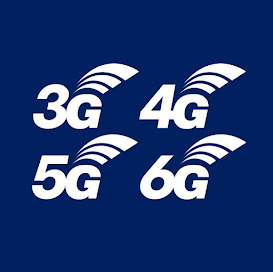
The FCC's auction for 700-MHz bandwidth, scheduled for later this year, is gearing up to be an epic sale that could have a major impact on the world of wireless technology, especially with FCC Chair Kevin Martin now calling for an "open broadband network," one that will open the door to a lot of innovative wireless services.
You buy a cell phone, load any software you want on it, then choose your carrier. This vision of expanded consumer choices in the wireless world might be a little closer today than it has ever been, especially with reports that the chair of the Federal Communications Commission (FCC) is circulating an "open platform" proposal for the upcoming auction of the 700-MHz band.
FCC Chair Kevin Martin told USA Today on Monday that "whoever wins this spectrum" will have to provide a "truly open broadband network -- one that will open the door to a lot of innovative services to the consumer."
He said an open network would mean a consumer could "use any wireless device and download any mobile broadband application, with no restrictions," except for illegal or malicious software. USA Today and other news outlets are reporting that Martin has sent or is about to send a draft proposal to his fellow commissioners.
Martin noted that, in some other countries, consumers usually take their unlocked devices with them when they change carriers, as opposed to in the U.S., where cell phones typically are locked for use only on a given carrier's network.
And the news gets better...
Writing Tuesday on its public policy blog, Google Telecom and Media Counsel Richard Whitt applauded the reports of Martin's proposal. Whitt, hired by Google a few months ago, formerly headed up MCI's regulatory department.
Google, which said it has not decided whether it will participate in the auction, sent a letter to the FCC on Monday, according to Whitt, urging that winning bidders be required to adopt several types of "open platforms."
A key part of open platforms, Google contends, is that consumers would be able to use any combination of devices, software applications, content, or services. In addition, the company maintains, resellers should be able "to acquire wireless services from a 700-MHz licensee on a wholesale basis," and ISPs should be able to interconnect "at a technically feasible point" to a 700-MHz licensee's wireless network.
However, Current Analysis analyst Bill Ho identified potential issues with these ideas, notingthat interconnection and the use of any device could require some uniform or encompassing technological standards, rather than the competing standards that now exist.
The auction for bandwidth, scheduled for later this year, is gearing up to be epic. The sale will include spectrum in the 700-MHz band that has been used for analog television since the beginning of that medium, as U.S. TV is going completely digital by mid-2009.
The 700-MHz spectrum is particularly valuable because it penetrates walls and various obstacles more effectively than other frequencies, and the FCC is now developing the rules for the auction.
A 108-MHz block of bandwidth will become available after the analog TV stations complete their transition. Of that 108 MHz, 60 MHz will be auctioned in January 2008, public safety officials will receive 24 MHz, and 24 MHz already has been sold.
Estimates indicate that the auction could yield $20 to $30 billion for the government.


No comments:
Post a Comment